![]()
labrys,
études féministes/ estudos feministas
janeiro/ junho 2016 - janvier/juillet 2016
Feminism and Women of Note
Diana Ambache
Abstract:
Women composers are generally considered as 'rare birds' and frequently treated as unwelcome in the musical mainstream. Their many, varied and beautiful compositions are beginning to be heard now; while there is some acknowledgement of their existence, critical approach is still subject to gender prejudice. In the generalisations made about women, the expectation of their compositions is that they are short, sweet salon pieces, 'bon-bons', and certainly not original or radical. Even if all composers have a hard time getting performed these days, the statistics on composer gender imbalance in the UK BBC Promenade Concerts illustrate that there's still a long way to go. If lucky enough to get a musical education, and not suffer the restrictions of social attitudes, many women composers were successful in their own lifetimes; but they were mostly forgotten when they died. A good source of information is the New Grove Dictionary of Women Composers.
Key-words: women composer, musical education, social attitudes
Equal rights:
Feminism is not a simple subject, and indeed I’m confused about feminism in music; (perhaps the term is anachronistic). Some 30 years ago I started working to promote music by women, thinking this work would get returned to the standard repertoire once heard. How wrong I was; (I’m just beginning to appreciate how proactive we need to be). While the music business has long been open to having women in performing and entertaining roles, they are only occasionally in positions of authority, creative and others.
It is still rare to see or hear a female composer, conductor, or leader of an orchestra. There have been many discussions about the cultural marginalisation of women; historical scores have been ‘rediscovered’; gendered discourse has been examined (notably by North Americans); CD recordings have been made; a few UK Universities include a course on gender in music. But (certainly in Britain) there is a visible reluctance to include women’s music in the canon, or engage a woman as Maestro. “I have been a woman for over 50 years and have got over my initial astonishment. As for conducting an orchestra, that’s a job where I don’t think sex plays much part.” according to Nadia Boulanger.
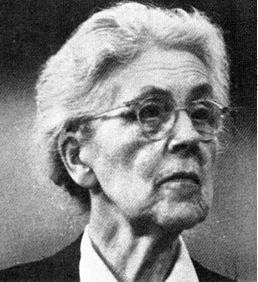
Scientific measurement:
Statistics illustrate the point: just a few works by women are included in the London Prom concerts each summer (about 10% in 2015), and it was only in 2013 that the important Last Night of the Proms was first conducted by a woman (Marin Alsop). Indeed, there are still not many female conductors – the appointment of Mirga Gražinyé-Tyla as music director of the City of Birmingham Symphony Orchestra (2016) made her only the third female conductor of a top UK orchestra; quite a few raised eyebrows accompanied the engagement. If only we could be like W C Fields ‘I am free of prejudice, I hate everyone equally’.
The 2015 film Suffragette dramatized the (still painfully relevant) story of what it took to get the vote for women in 1918 in the UK. However, nearly a century later, a reluctance to embrace women’s work and creativity continues. Despite being seen as ‘a bit of a character’, Ethel Smyth is probably the most famous suffragette/composer. She served 2 months in prison for her part in the suffrage movement, and her March of the Women (1911) became their anthem; it was also featured in the Overture to The Boatswain’s Mate, which could be described as her most feminist opera.
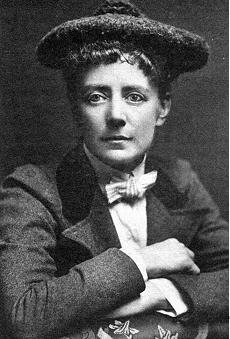
Popular culture was viewed by the 1970s feminist movement as sexist and it worked to raise awareness of women’s oppression in various ways. 40 years on, have we made progress? Possibly the word feminism now has more overtones than before; it doesn’t help that some words associated with the sisterhood are generally negative: (assertive=) aggressive, anti-men and lesbian. Here’s Chimamanda Ngozi Adichie’s comment: ‘[...]that word feminism is so heavy with baggage’. Indeed, even the cliché a woman’s touch is a bit double edged. OK, equal rights and unequal pay are important issues. However, if I’m called a feminist, I usually say I wish for fairness and impartiality; but the world is not up for that yet.
The asset of beauty:
The way that the attitude to the female body continues to skew things means that it’s very difficult for women to be appreciated for all their other attributes and qualities, including the ability to write music. Physical attraction between people blurs the picture; generally women are perceived through the lens of allure, charm, sex, and seduction. Unfortunately both sides play this game: men desire and women wish to be desired. This seems to lead to an obliteration of other aspects of interest and value. Many women long for appreciation, and it has led to their emphasising attractiveness; likewise, men’s need to influence and dominate has focussed on women’s pleasing aspects, to the exclusion of most others, such as being composers.
Well, I said that everybody’s responsible for the (excessively) glamourous expectations around women; some female performers are quite keen to dress exposing as much skin as possible, while commentators remark on their attire and looks. Mozart wasn’t reviewed in today’s sense, but people didn’t normally remark on his short stature and pock-marked face. Generally female performers are fed up with having their frocks discussed in print. However, recently there was a feature in a glossy music magazine about a young European pianist of ‘formidable virtuosity’. The publicity photo on the cover showed her considerable cleavage and generous embonpoint; the article mentioned that her physical attributes have drawn more than a little notice, and she said that she was angry about all the comments on her dress and physique. What I can’t fathom is why play the game and then get annoyed?
Gender identity:
Moving on to gendering in music, feminine endings might be the first phrase to come to mind – defined as ending on a weak note or cadence; the feeble association makes a dispiriting starting point. (American musicologist Susan McClary has written a whole book under that title.) What this description highlights is the expectation of non-assertion, which has created a load of problems. Women write pretty little salon pieces, don’t they? Sorry – no; let’s remember that well-behaved women (and men too) seldom make history.
Take Elizabeth Maconchy, for example; she was criticized for being too aggressive in her writing, for example, as in her succinct and powerful series of thirteen String Quartets (which she described as ‘impassioned arguments’).
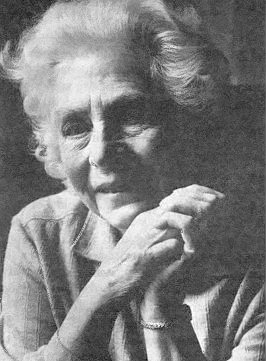
This leads to the idea that music by men is noisy and forceful, while women create in a more delicate and sensitive mode; this in turn suggests that Chopin is female, Mozart might be both, and Beethoven is male. If you’re interested in ‘noisy’ music by women (and there are plenty of big pieces) you could try listening to symphonies by Amy Beach, Alice Mary White, Florence Price and Dora Pejacevic, or an opera by Ethel Smyth.

Share with all:
Ironically, in the UK, the broadcaster most interested in ‘soothing’ music almost never airs anything written by women; of course, the world is not a logical place. The other, principal, British broadcaster of classical music has a vision statement about respecting and celebrating diversity, and being impartial and honest. Unfortunately the facts don’t reflect this. An ongoing ‘women count’ on twitter (based on composers listed in the UK Radio Times) show that music by women occupies about 2% of their air time. We may not have composed half the world’s music, but what there is includes some very fine work indeed. Whereas, the actual broadcast music includes some distinctly second rate pieces by men; this looks like an old-boys-network enacting old-fashioned prejudice.
Ignorance:
Lack of knowledge is another factor; many people simply have no idea how many interesting, beautiful and moving works have been written by women. Recently, in an attempt to show how much eloquently expressive music there is, I’ve been feeding information to the broadcaster about recordings which could be included in their schedules, and works by some 65 women which the orchestras could programme. I’m not holding my breath for a quick sea-change. (If you’re curious, there are repertoire lists on my information website www.womenofnote.co.uk.) A new book Sounds and Sweet Airs (by Anna Beer) has recently been published; it presents the complex and inspiring stories of 8 women from the last 4 centuries – a helpful contribution to seeing the historical picture.
Production:
Creativity is at the core of writing music, and perhaps the ultimate creative act is giving birth to a new human being. It’s possible that men feel so overwhelmed about not doing this deed themselves that they need to hold on to power in other ways. I gather there’s an African tribal custom, at the time of the birth of a new baby, when the men go off together and do a special ritual of their own. If this relates to balancing the sexes, then is there a parallel idea that symphonies should be the preserve of men? After a joint act of procreation, women play a special role in gestating and caring; personally I don’t think that that excludes them from other creative and imaginative acts.
Talking with the Association of British Orchestras, I was told that programme repertoire is frequently decided by conductors; on the whole these people are not very keen on being given suggestions about the music they might direct. I suppose when you’re in charge you’re in charge. We might note that, regarding power, it is not true that women win only at the expense of men losing – it’s not a limited cake; sharing could be to the benefit of all. Coco Chanel seems to be observing this: “Women must tell men that they are the strong ones. They are the big, the strong, the wonderful. In truth, women are the strong ones.”
Personal integrity:
Above, I’ve highlighted generalizations about the sexes and their usually rather crude nature. There are as many different versions of being human as there are people in the world. We all have different characters, different ways of doing things and different imaginations. Is it not more interesting to include the whole inventive range, in all its diverse and assorted colours?
Alongside this variety is a cliché about women’s lack of originality. Critics can sometimes liken a work by a woman to one by a man, and people have occasionally said to me that a piece by a woman is a copy of something by a man. Well, it’s worth checking dates: Marie Grandval’s Romance for oboe, cello and piano was written in 1884, and it anticipated the Elysian atmosphere of Fauré’s Requiem by some 3 years.
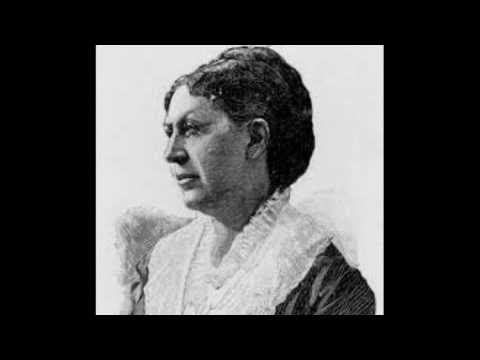
Olivier Messiaen’s great interest in ornithology resulted in his writing a notable sequence of bird-connected works, from the 1952 Le Merle Noir onwards. Fine; and Amy Beach wrote the Blackbird in 1889, The Thrush in 1901, and included bird song effects in other works.
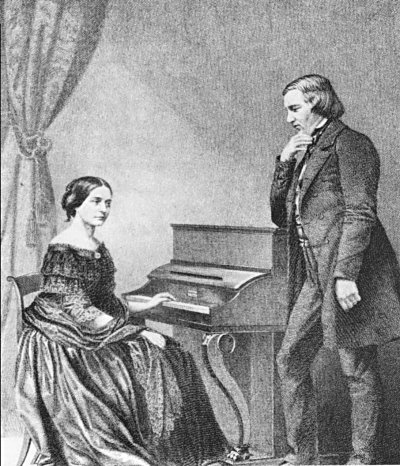
When Robert Schumann is credited as the principal influence on Clara (and similarly Felix on Fanny Mendelssohn) it seems to me that the listener has not heard the differences in the individuals behind the music: Clara’s music has a unique noble melancholy, which is not at all characteristic of Robert; and there is a quite different intensity in Fanny’s music, by contrast to Felix’s decorum. These pairs simply shared a rich discussion of music, together, at home.
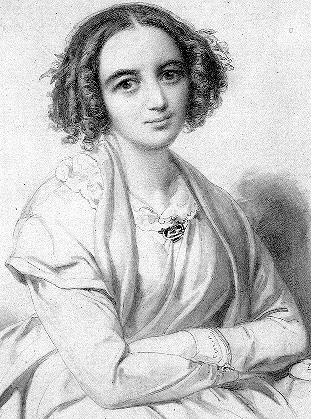
Positive prejudice
Tokenism is also something to consider. Should we make sure that women are included through quotas? The problem is that I have seen some women put forward in this way who haven’t done a very good job and, therefore, are not representing us well. Never-the-less, we make a little progress in surmounting the barriers which so manifestly restrict us. The English are generally liberal and open minded; unfortunately this seems to include a reluctance to pin down any prejudice; so, here, it’s especially hard to get people to grasp the problem and move on. The 2016 Panama Papers exposé was a vivid illustration of the world’s slippery, double standards.
Communicating character:
The inability to differentiate quality from rudimentary definition lies at the heart of this whole issue. It can also be seen in critical reviews; when commentators just write about the history of the composer, rather than the experience of listening to the music, you wonder if their listening is a bit cloth-eared; they may also be nervous of exposing their own limitations as critics. Despite slow progress, I think there is a little movement. The music in my first concert with a work by a woman (Germaine Tailleferre’s 1924 Piano Concerto) was reviewed as ‘all style and no content’; 20 years later, we received this headline: ‘Vive la musique des femmes’. Commenting on all industries, the British actor Helen Mirren said ‘In my lifetime I’ve seen things go from utterly iniquitous to fairly iniquitous to slightly iniquitous.’ Mustn’t grumble.
Strong advocates:
For today’s living composers, it seems to me that there is a more equal playing field in getting heard. For the historical ones, it’s a different story – these people are not here to put forward their work, to talk with promoters, performers and broadcasters, and to keep their music in the public eye (ear). Frequently composers are forgotten once deceased. Goodness, even Bach was ignored after he died, and it took the Mendelssohn revival to bring his work back into the musical world. How much harder it is when there’s so little public evidence of their creativity.
These composers need champions, to tell the world about their work now. The problem of not being included in the history books compounds the issue; so, people need to be able to research well, with an independent mind. I run a Trust with the strap line raising the profile of music by women. Further to my previous comment, we receive many applications from living composers, and even though we stress our interest in historical projects, these are still less frequent. (Somebody reminded me that Adele’s song for the Bond film Skyfall has been heard by millions – yes: crowd-pleasing, written and sung by a woman, and award winning. Unfortunately I’m not talking about the pop business.)
I don’t wish to be exclusive in any way. However, all the –isms above seem to result in women being in a kind of ghetto. A music critic who had been to one of my Orchestra’s concerts (i.e. he had seen us live, and our mixed personnel) later described the Orchestra as all female; apart from the memory lapse, it looked like an assumption that only women would play music by women! Although my current CD recording activities feature women, in concert programming I generally try to keep a balance. Past audiences have enjoyed the familiar (frequently Mozart) combined with the ‘new’ (old) discoveries. It was pleasing to see our latest CD Liberté, Egalité, Sororité reviewed with the comment “much still needs to be done for those from earlier times who were faced with a dismissive establishment fraternity.”
Music as a commodity:
Other professionals in the business include music publishers and CD recording label executives. More than 20 years ago I managed a collection of 3 new recordings for an independent label; (Christina Ortiz played piano music by Clara Schumann, Catherine Bott sang Barbara Strozzi and we played three chamber works by Louise Farrenc). It was good that Carlton produced the CDs, but they were not willing to spend anything on marketing; so the discs appeared and disappeared with little notice. Of course this is a risky business and generally record companies are less and less willing to outlay good money on an unpredictable outcome. Fortunately composers can create and print their own scores these days, and sell them through the web. Never-the-less, network distribution and marketing are always important and it looks as if the reluctance to embrace women here is another resistance to inclusion by worth. Other situations where more female music could be included are educational programmes, and competition and exam syllabi.
Then there’s the media. My projects have had quite a lot of coverage, frequently in the vein of ‘human interest’; the women who’ve worked to overcome the difficulties have shown great determination, which came from a love of what they did. While their ‘stories’ can be engaging, only occasionally have the qualities of the music they’ve written been well described. We, the English, also have a somewhat elastic sense of principle: we like to think we’re inclusive and accepting, while actually often avoiding a difficult subject; this talk, without action, may even be called English decency!
International Women’s Day on March 8th each year usually produces different activity. In the UK, BBC Radio 3 broadcasts a whole day of music by women, and some promoters use it as a reason to programme such works. Frequently there is a sense of finding something ‘new’ and the special pleasure brought by these fresh encounters; my husband described the BBC’s IWD output in 2016 as ‘sparkling’. So, one day in 365 is better than none; but after that, life generally returns to business as usual. London’s South Bank Centre ran the Women of the World festival in March 2016, including talks, debates and music, and enumerating the same societal strictures enacted in the creative industries – another version of English decency? With the rich and striking array of music that emerges on IWD, I wish to hear more.
Everyone accountable:
Meanwhile, as I said, we seem to inch forward. If we reduce things to gender, then we lose what has been created. Kurt Vonnegut was more optimistic than me: ‘The Year was 2081 and everyone was finally equal.’ The world is not fair, and with the imbalances I’ve described above, it looks like it may take a while for us to be genuinely received for what we are and what we do; please accept my apologies for not being more hopeful. Anyway, I persevere in campaigning for women’s music to be heard. We can continue to try to open doors (and ears) and show the opportunities and stimulating experiences that hearing these works can bring. We have to be proactive and move forwards by being innovative, talented, fertile and resourceful.
Conclusion:
Somebody once said that the world’s political differences could best be sorted out by women, (attributed to our ability to sympathise). Or, according to UN Secretary General, Ban Ki Moon, ‘Equality for women is progress for all.’ Quite a few people think that gender equality might be the best thing that could happen to men. Hoping we are in an age of transition, I wish us all to think (and act) so; yes, I mean both men and women. Friends of the Earth recently published a collection of articles on ‘Why Women Will Save the Planet’; (I wish). Change usually happens when it’s really wanted, which returns the issue to us all wanting it enough to move forwards.
My opening statement of confusion might be more accurately said as a mix of frustration and aspiration. It’s rather better in Virginia Woolf’s words “As a woman I have no country. As a woman I want no country. As a woman my country is the whole world.” What do we want? How can we get it? I think we should have more action alongside the talk; do you know any people such as promoters, broadcasters, performers, etc, who we could ask to include this music in their activities? What an enrichment of our lives the inclusion of this music could be.
Bibliography
Books
Julie Anne Sadie & Rhian Samuel,1994. The New Dictionary of Women Composers. MacMillan
Chimamanda Ngozi Adichie,2014. We should all be feminists. Fourth Estate
Periodicals
BBC Music Magazines (various)
RadioTimes (UK)
Electronic texts: various online, including
www.womeninmusic.org.uk (Proms Survey)
twitter: woman count
Biography
:
DIANA AMBACHE is a pianist, orchestra director, researcher, musicologist, broadcaster, teacher and campaigner for the appreciation of music by women. For 24 years, she ran the Ambache Chamber Orchestra (1984-2008), playing concerto solos, directing the group and programming their events. Together they gave over 40 modern premières, and made 8 original CD recordings of music by women, and 8 new CDs of music by Mozart, Beethoven and Respighi, for the BBC, Chandos Records and Naxos.
She has given concerts and masterclasses in 34 different countries on five continents. Her broadcasts on the BBC and Classic fm have featured the work of music by women. She was short-listed for the 2002 European Women of Achievement Awards for her research into music by women composers and her discoveries are displayed on www.womenofnote.co.uk. Continuing her life’s work to raise the profile of music by women composers, she set up the Ambache Charitable Trust in 2013; it gives grants to specific projects performing, creating, and furthering the work of women. As a TEFL teacher she has taught English in London, India, Peru and Laos.
She was Musical Director and Solo Pianist of the Ambache Chamber Orchestra from 1984 to 2008 (www.ambache.co.uk). She was the only woman in the UK to found and direct her own Classical chamber orchestra, and has made 16 new CD recordings. She has performed solo, chamber and concerto concerts in 33 countries on 5 continents. As well as being a Mozart specialist, she pioneered the revival of music by women composers of the last 300 years. Her research, editing, performing and recording work was recognised by being short-listed for the European Women of Achievement Awards 2002. Her findings can be seen on www.womenofnote.co.uk. She has taught Mozart at Dartington International Music Summer School, and taught creativity and teamwork at various London Business Schools. She was a specialist music lecturer for Martin Randall Travel, and has made frequent broadcast interviews and features on the BBC radio networks
![]()
labrys,
études féministes/ estudos feministas
janeiro/ junho 2016 - janvier/juillet 2016